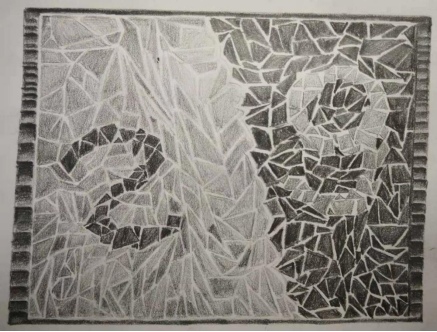In theory and practice, TCM is completely different fromWestern medicine, both in terms of considering how the human body works and how illness occurs and should be treated.
To make it clear, let’s see a picture.

What do you see from the picture? For Western medicine this is a picture with small colorful dots. TCM finds there is a reversed letter “S” and a number “9”. In fact,both medical systems deal with the same objective (human body). Their conclusion is different since the angle of view is different. Western medicine focuseson details while TCM concentrates on the whole.
The word“patient”has different meanings for Western medicine and TCM. From the perspective of Western medicine, a patient would be viewed as a basically healthy individual with a particular problem. In Chinese medicine, however, disease is not viewed as something that a patient has.Itis an imbalance in the patient’s being. Therefore, Western medicine focuses mainly on treating disease. But TCM looks at your entire well-being. Western medicine tends to view the body a lot like a car. It has different systems that need the right inputs and outputs. It’s very concrete and logical, whereas TCM is based on balance, harmony, and energy. One of its guiding principles is to “dispel the bad and support the good.” In addition to treating illness, TCM focuses on strengthening the body’s defenses and enhancing its capacity for healingandmaintaininghealth.
A patient goes to see a TCM doctor. In TCM, treatment is not based only on the symptoms, but differentiation of syndromes.When the doctor evaluates the syndrome, he or she considers not only the cause, mechanism, location, and nature of the disease, but also the confrontation between pathogenic factor and body resistance. Therefore, those with an identical disease may be treated in different ways, and on the other hand, different diseases may result in the same syndrome and are treated in similar ways. I know this is difficult to understand. Let me share you two examples. One day two patients with the same symptom of high fever and constipation went to see a famous TCM doctor. One is given herbal medicines to relax bowels. The other got medicines to induce perspiration. Surprisingly they were recovering. When asked, the doctor answered, “The same symptoms resulted from different causes. One patient suffered from exogenous pathogenic factors. The other was attacked by internal damp-heat. So they were treated differently. ” The other day, two women patients with different symptoms went to the TCM doctor. One was diagnosed with gastroptosis (the abnormal downward displacement of the stomach), and the other was attacked by hysteroptosia (the abnormal downward displacement of the uterus). The doctor prescribed the same medicines. The patients were puzzled, and the doctor explained, “Your gastroptosis and your hysteroptosia are both caused by sinking of middle qi, so I used the same medicine to elevate it.” Treatment based on syndrome differentiation, one of the characteristics of TCM, is the basic principle in TCM for understanding and treating diseases.
Many people believe the main difference between Chinese medicine andWestern medicineis that Chinese medicine seeks to treat the body as a whole, while Western medicine focuses on the main problem area. Neither one is wholly right nor wholly wrong; instead they complement one another.
转载自《中医药文化概览》